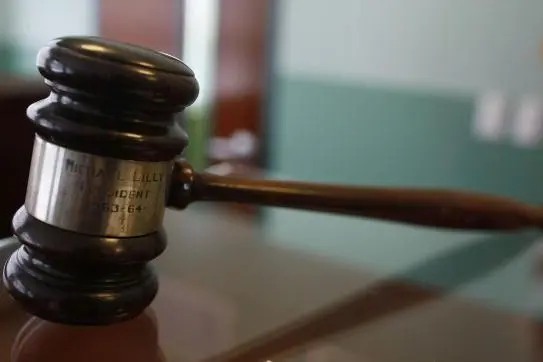PHOTO
Bahrain - Two new types of alternative penalties that are mandatory – placement in specialised psychiatric institutions or health clinics, and compulsory reporting to security facilities during designated hours – will be introduced in Bahrain.
These changes increase the total number of available alternative penalties from seven to nine.
The Shura Council yesterday unanimously approved a set of government-drafted amendments to the 2017 Alternative Sentencing Law.
The proposed changes, previously passed unanimously by Parliament, seek to enhance and broaden the scope of alternative punishments, offering more humane and rehabilitative solutions for offenders.
The seven existing alternative penalties are: Community service, house arrest, restrictions from certain locations, ban from specific electronic websites, avoidance of certain individuals or groups, electronic monitoring, rehabilitation and training programmes, and repairing damages caused by the crime.
The new amendments also ban offenders from certain websites directly related to their crimes, instead of a blanket prohibition on Internet use.
One of the key elements of the amendments is the designation of the Interior Ministry as the sole authority responsible for overseeing the implementation of all alternative punishments.
This move aims to enhance accountability, co-ordination and efficiency.
Since its introduction in 2017, Bahrain’s alternative sentencing law has benefited 7,836 individuals.
Shura Council foreign affairs, defence and national security committee chairman Dr Ali Al Rumaihi said the reforms would not only help reduce prison overcrowding, but also offer a more humane, rehabilitative approach to justice.
He stressed the significance of the reforms in offering a second chance to convicts:
“Alternative sentencing provides a second chance for offenders to reform and reintegrate into society. It is a balanced approach that benefits both the individual and the community.”
Shura Council second vice-chairwoman Dr Jihad Al Fadhel also praised the law’s success and highlighted the importance of adapting to digital and social developments.
She explained that restricting access to specific websites, rather than blanket bans, ensures fairer application of justice.
“The amendments strike a balance in achieving justice for convicts. For example, they are not entirely barred from using electronic platforms – only the ones linked to their crime.”
Dr Al Fadhel further proposed the creation of a fund to support alternative sentencing programmes.
“I suggest the Interior Ministry conduct a feasibility study on establishing a dedicated fund, jointly financed by the government, private sector, and civil society organisations, to support these programmes.”
The amendments were drafted with inputs and support from the ministries of Interior, Justice and Social Development, as well as the Supreme Judicial Council, Bahrain Bar Society and the National Institution for Human Rights.
Present during the weekly Shura Council session yesterday were Justice, Islamic Affairs and Endowments Minister Nawaf Al Maawda and Social Development Minister Osama Al Alawi alongside senior Interior Ministry officials.
Shura Council foreign affairs, defence and national security committee vice-chairman Shaikh Ahmed Al Khalifa said there was widespread institutional backing for the reform.
“Most concerned entities have expressed strong support. It is clearly in the interest of the convicted individuals, as it promotes their rehabilitation and reintegration into society as productive members.”
However, Shaikh Ahmed also raised an important point of clarification.
“Does the alternative sentence truly correspond to the severity of the crime committed? Are there evaluations in place to assess the convict’s behavioural, psychological and mental condition before applying alternative sentencing?”
Committee rapporteur Ali Al Aradi said the reforms to Bahrain’s alternative sentencing law reflect a shift toward modern judicial practices that prioritise rehabilitation over retribution.
“The government aims not only to reduce overcrowding in prisons, but to create a justice system that is fair, effective, and in step with international standards.
It has been referred to His Majesty King Hamad for ratification.
Copyright 2022 Al Hilal Publishing and Marketing Group Provided by SyndiGate Media Inc. (Syndigate.info).





















